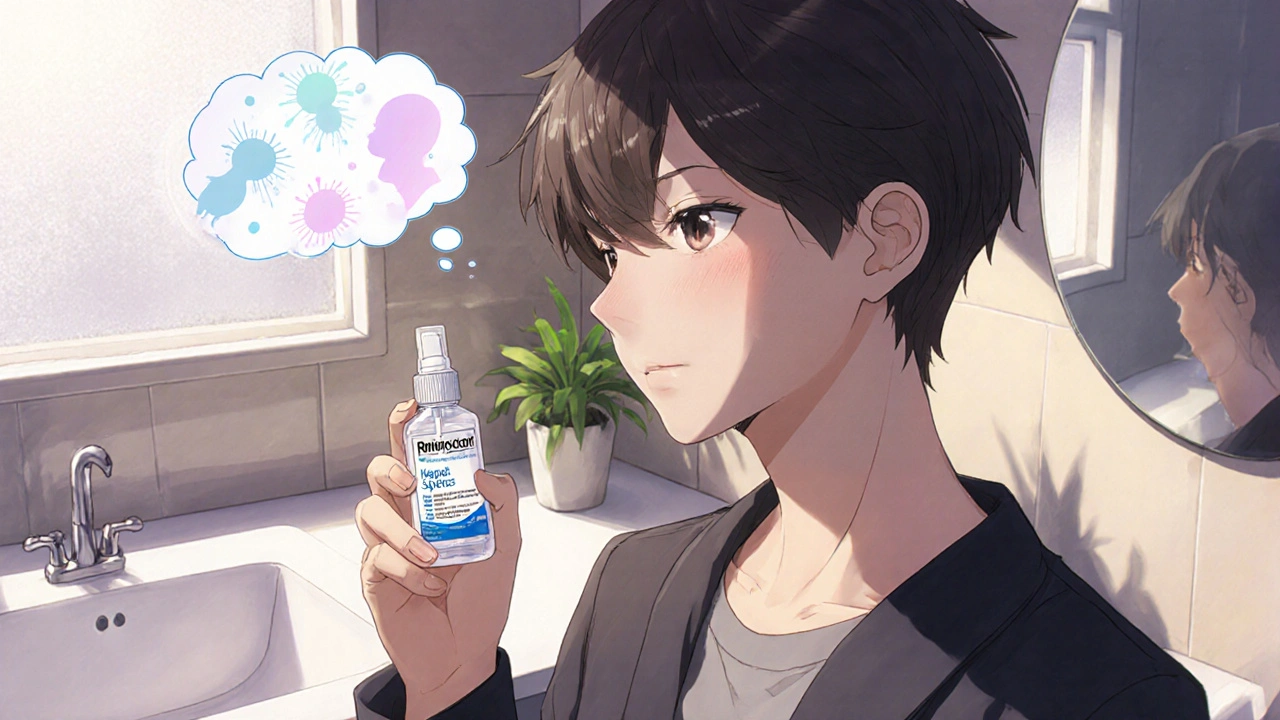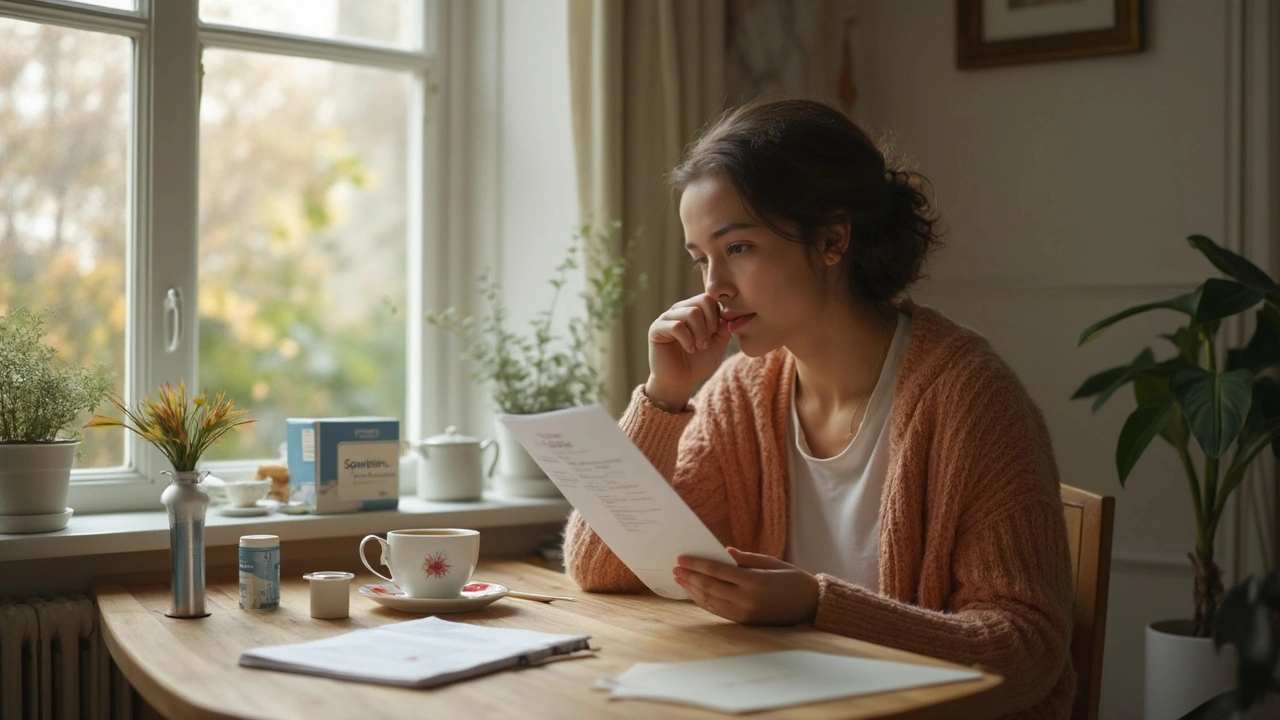Allergy Medication: What Works and What to Watch For
Allergy meds can stop sneezing, clear a blocked nose, and calm itchy eyes. But not every drug works the same, and picking the right one matters. Below you'll find straightforward info on common options, safety tips, and how to buy them safely online or in person.
Common Types & How They Work
Antihistamines block histamine, the chemical that causes itchiness and sneezing. Non-drowsy choices include loratadine, fexofenadine, and cetirizine. Diphenhydramine (Benadryl) works fast but often makes people sleepy—use it at night or for short courses.
Intranasal steroid sprays like fluticasone and budesonide reduce inflammation inside the nose. They take a few days to reach full effect but are the best for long-term control of nasal symptoms.
Decongestants ease stuffiness. Pseudoephedrine (oral) is effective but can raise blood pressure and cause jitteriness. Phenylephrine is common in stores but often less reliable. Nasal decongestant sprays work quickly but should not be used more than three days in a row to avoid rebound congestion.
Leukotriene receptor antagonists (montelukast) are prescription pills that help some people, especially those with both allergies and asthma. Allergy shots (immunotherapy) offer longer-term relief by changing how your immune system reacts—ask an allergist if that fits you.
Safety, Side Effects, and Buying Tips
Read labels and follow dosing instructions. Antihistamines can cause dry mouth and drowsiness, especially older drugs. Avoid alcohol with sedating medicines. If you have high blood pressure, heart disease, prostate problems, or glaucoma, talk to your doctor before using decongestants.
For kids, use products labeled for their age and weight. Many adult pills are too strong for children. Pregnant or breastfeeding? Ask your healthcare provider before starting any new medication—some are safer than others.
Buying meds online? Use licensed pharmacies with clear contact details and real customer reviews. Prescription drugs require a valid prescription—sites that skip that are risky and may sell fake or unsafe products. Look for secure checkout (https and a padlock icon) and a visible pharmacy license or certification.
If your symptoms don’t improve after a proper trial of OTC meds, or if you have severe breathing problems, wheezing, or swelling, see a doctor right away. Regularly needing high doses or multiple drugs is a sign to re-evaluate your treatment plan.
Storage is simple: keep meds in a cool, dry place away from kids and pets. Dispose of expired products properly. And remember—effective allergy care often combines medication with trigger control: wash bedding, use HEPA filters, and limit outdoor exposure on high-pollen days.
Questions about which option fits your routine or health conditions? Ask your pharmacist or primary care provider—they can match a safe, effective plan to your needs.
A clear, practical guide comparing Rhinocort (budesonide) with other nasal sprays, covering pros, cons, pricing, side effects, and tips for choosing the right allergy spray.
Read more
Singulair, known generically as montelukast, is a popular medication for asthma and allergy relief. This article dives into how Singulair works, who should consider using it, known side effects, and provides practical tips for safe usage. Expect up-to-date facts, real-world advice, and a close look at the latest research on its effectiveness and safety. If you're weighing Singulair for yourself or a loved one, this guide has you covered.
Read more







